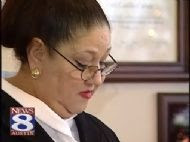 The Austin Chronicle has an article discussing the start of the revision of Texas K-12 science standards. I thought those were going to be discussed later in the year, but apparently things are starting now.
The Austin Chronicle has an article discussing the start of the revision of Texas K-12 science standards. I thought those were going to be discussed later in the year, but apparently things are starting now.According to SBOE chair and College Station dentist Dr. Don McLeroy, this year's "battle is to bring in some of the weaknesses of evolution," to ninth- and 10th-grade biology classrooms, retaining language requiring that teachers instruct students in the "strengths and weaknesses" of scientific theories.And why should we do that? Isn't the evidence overwhelming? What weaknesses are we talking about?
For once, McLeroy spells it out. Get ready. You can feel the sense of dread permeate the room.
In McLeroy's opinion, there are three major weaknesses of evolutionary theory that schoolchildren should be made aware of. He arrived at these conclusions by "reading everything [he] could get [his] hands on" and listening to podcasts.Setting aside whether all the kids in the state's education should be determined by one dentist listening to some stuff on the internet, let's get on to the criticisms.
First weakness: the fossil record. "There are gaps," said McLeroy, that do not include enough transitional forms of life to support evolution. Second, McLeroy says there has simply not been enough time on Earth for the minute changes required by evolution to have taken place. Thirdly, McLeroy says the incredible complexity of cells proves divine design.In turn.
First, McLeroy seems to imply that there are some transitional fossils, so the issue is that there isn't enough. Of course, there will never be enough for him.
Second, McLeroy doesn't say how old he thinks the Earth is. Since he is a Young Earth creationsist, he probably thinks the world is about 6,000 years old. If that's how old the world was, McLeroy would be right that there hasn't been enough time. But the Earth is ancient.
Third, argument from personal credulity.
The article concludes with the concern:
If the weak-evolution curricula passes, Texas schoolchildren will be able to achieve that success in one of two ways: fly out of state for biology class and be back in time for lunch or set their sights on excelling at Jerry Falwell's Liberty University.






















